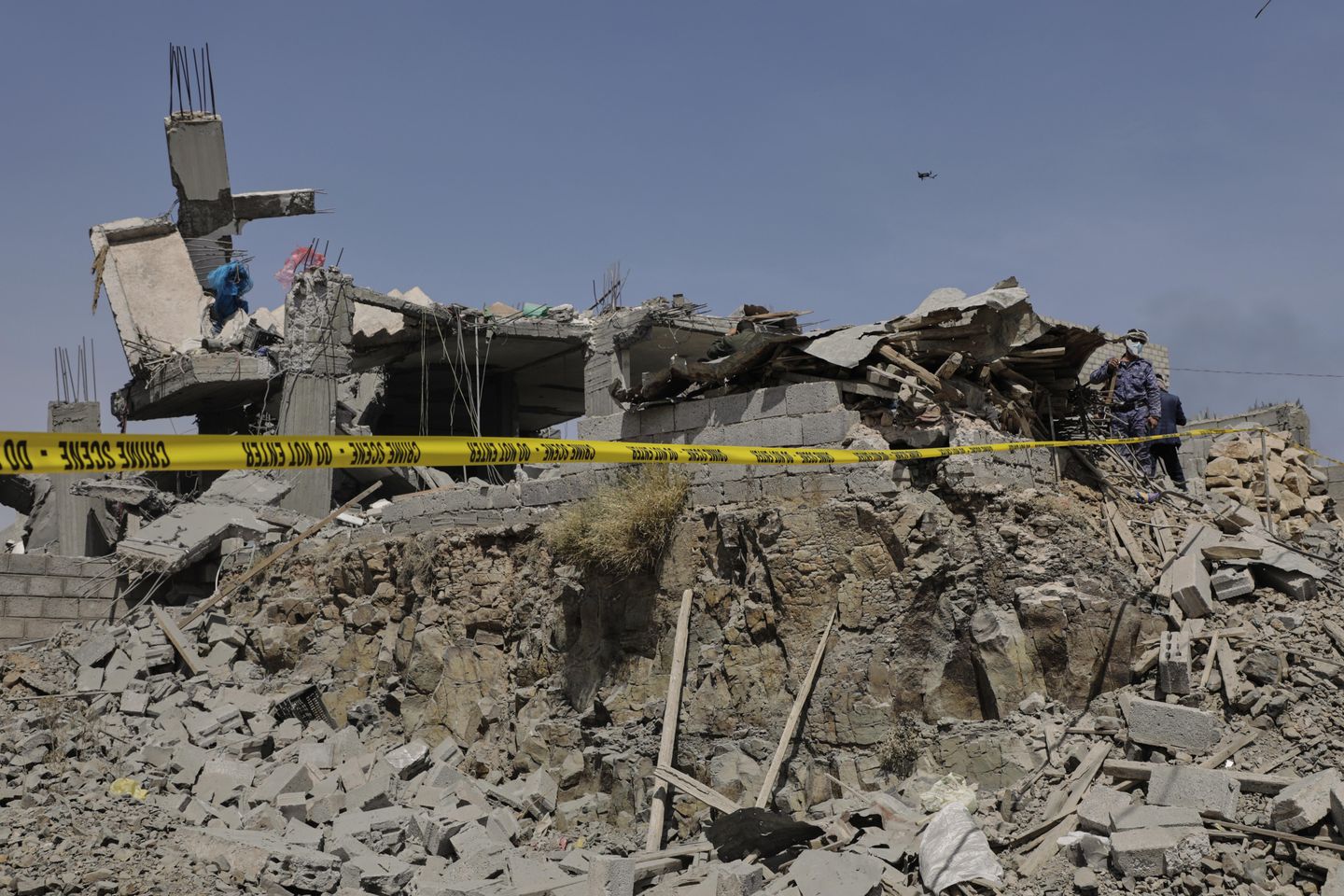
U.S. forces launched strikes against a Houthi-controlled fuel platform in Yemen in the Trump administration’s ongoing mission to end the Iranian-backed military group’s ability to threaten maritime traffic in the Red Sea.
On Thursday, U.S. Central Command officials accused the Houthis of using the Ras Isa fuel port to sustain their military operations. Despite the White House’s April 5 declaration that the Houthis were a terrorist organization, ships have continued to use the port to supply them with fuel.
“Profits from these illegal sales are directly funding and sustaining Houthi terrorist efforts,” Center Command officials said in a statement. “This fuel should be legitimately supplied to the people of Yemen.”
The purpose of the strikes was to degrade the economic power of the Houthis, who continue to exploit the people of Yemen, who want to “throw off the yoke of Houthi subjugation and live peacefully,” Central Command officials said.
The military strikes against the Houthis coincided with the Treasury Department’s Office of Foreign Assets Control sanctioning the International Bank of Yemen and several of its top officials for financially backing the Houthis. The bank’s key leaders who have also been sanctioned are identified as Kamal Hussain Al Jebry, Ahmed Thabit Noman Al-Absi and Abdulkader Ali Bazara.
“The designation of IBY complements the ‘whole of government’ effort to stop Iran-backed Houthi attacks against commercial shipping in the Red Sea,” Treasury Department officials said.
Banks like IBY are crucial to Houthi efforts to access the world’s financial system and threaten both regional and international commerce, said Deputy Treasury Secretary Michael Faulkender.
“Treasury remains committed to working with the internationally recognized government of Yemen to disrupt the Houthis’ ability to secure funds and procure key components for their destabilizing attacks,” Mr. Faulender said.
The International Bank of Yemen provides the Houthis with access to their Society for Worldwide Interbank Financial Telecommunications [SWIFT] network, which allows them to make international financial transactions.
It allowed Houthi-associated businesses to purchase oil through the bank’s access to the SWIFT network. It also facilitated attempts by the Houthis to evade sanctions oversight, and has helped them mobilize resources and confiscate assets from their opponents, Treasury officials said.
The sanctions mean all property and interests in property under the control of IBY officials that are in the U.S. or in the possession or control of U.S. residents are blocked and must be reported to the Office of Foreign Assets Control.
“In addition, financial institutions and other persons may risk exposure to sanctions for engaging in certain transactions or activities with designated entities or otherwise blocked persons,” Treasury Department officials said.


![Jasmine Crockett Justifies Mass Illegal Immigration With Bizarre Argument [WATCH]](https://www.right2024.com/wp-content/uploads/2025/03/1742007023_Jasmine-Crockett-Justifies-Mass-Illegal-Immigration-With-Bizarre-Argument-WATCH-350x250.jpg)
![Red Sox Fan Makes the ‘Catch of the Day’ with Unconventional ‘Glove’ [WATCH]](https://www.right2024.com/wp-content/uploads/2025/04/Red-Sox-Fan-Makes-the-‘Catch-of-the-Day-with-350x250.jpg)
![NYC Tourist Helicopter Falls into Hudson River, Siemens Executive and Family Among Those Killed [WATCH]](https://www.right2024.com/wp-content/uploads/2025/04/NYC-Tourist-Helicopter-Falls-into-Hudson-River-Siemens-Executive-and-350x250.jpg)

![Biden Drops Racial Slur During First Public Speech Since Leaving Office [WATCH]](https://www.right2024.com/wp-content/uploads/2025/04/Biden-Drops-Racial-Slur-During-First-Public-Speech-Since-Leaving-350x250.jpg)



![Green Day’s Cringe Trump Diss Ends in Fire and Evacuation [WATCH]](https://www.right2024.com/wp-content/uploads/2025/04/Green-Days-Cringe-Trump-Diss-Ends-in-Fire-and-Evacuation-350x250.jpg)





